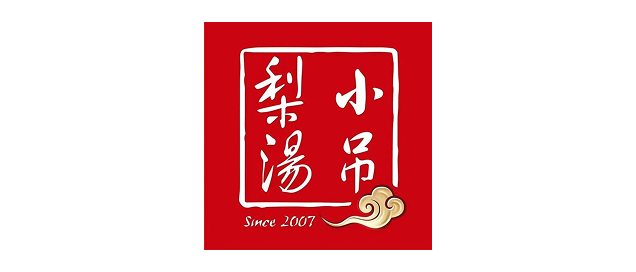
Whale SpaceSight drives a transformation in quality control by moving from manual checks to automated, online inspections and flexible analysis. This data-centric approach offers real-time insights, enabling timely issue identification and consistent standards across your entire store network.


As a chain restaurant brand, the brand places a high priority on monitoring food safety, hygiene, and operational compliance. With its continuous store expansion, the need for unified, standardized management has become increasingly urgent.
-
Standardized Management
As a multi-location restaurant brand, it is essential to implement unified and standardized management to ensure consistency in taste, menu offerings, and operations across all stores nationwide.
-
Reduced Inspection Costs
A more mature digital inspection solution is needed to address the rising costs—in manpower, time, and travel—associated with store expansion.
-
 AI Inspection
AI InspectionDigitize inspections and automate processes to enhance convenience and efficiency throughout the inspection workflow.
-
 Multi-Dimensional Data Analysis
Multi-Dimensional Data AnalysisEnable flexible and customizable data analysis to significantly improve the efficiency of performance and operational review.
-
 Actionable Data Insights
Actionable Data InsightsLeverage multi-angle data comparisons to uncover hidden issues and support timely strategy adjustments.
When it comes to iconic old Beijing snacks, people often think of fried dough rings, douzhir, and stewed liver—but as autumn and winter arrive, there's another distinctive Beijing specialty: Pear Soup.
In 2017, the first Pear Soup store opened in Beijing. Staying true to its old Beijing roots, the brand began with its signature pear soup and gradually expanded into a fuller range of traditional Beijing family-style dishes. By 2021, it had grown to 45 locations across cities including Beijing, Tianjin, Harbin, Xi'an, Shijiazhuang, Jinan, Shanghai, and Shenzhen.
As the chain expanded, so did the need for operational upgrades:
As a well-known Chinese restaurant chain, Pear Soup is committed to maintaining the highest standards of consistency in flavor and menu offerings across all its stores. To achieve this, the brand has long upheld a rigorous and standardized inspection process.
Yet, with a growing store network, how could the brand effectively manage the rising costs—in manpower, time, and travel—associated with physical inspections? How could it enhance inspection efficiency amid recurring pandemic disruptions, while ensuring operational consistency and preserving the authentic old Beijing taste across all locations?
A Shared Challenge Among Chain Restaurants
Virtually every chain restaurant brand faces the challenge of standardization:
Monitoring food safety, kitchen operations, and front-of-house standards is critically important. Any lapse, once exposed, can significantly harm the brand. As store networks grow, the need for unified and standardized management becomes even more pressing.
Yet traditional inspection methods are highly inefficient:
Under the conventional model, headquarters and quality control teams prepare evaluation forms, and supervisors conduct monthly on-site checks using paper forms, scoring performance and notifying store managers of items requiring correction. After the inspection, they return to the office to compile reports and organize documents.
Specifically, this approach often leads to the following issues:
- Unmanageable Processes: Difficult to track, prone to disconnects between steps.
Once a supervisor leaves the store, follow-up on rectifications is weak; store managers struggle to accurately record and execute corrections; quality control leads can only grasp progress through fragmented updates.
- Data Vulnerabilities: Records easily lost, reporting overly cumbersome.
Manual recording leads to errors and omissions; reviewing photos and notes is time-consuming; data assets are not accumulated, making analysis and comparison impossible.
- Costly & Unreliable On-site Visits: High travel expenses, compounded by pandemic-related restrictions, make it difficult to obtain a real-time view of store conditions.
In contrast, Pear Soup had already taken a step forward in digitalization, having introduced digital store inspections years earlier. As digital requirements continued to evolve, by the end of 2021, Pear Soup adopted Whale’s digital store inspection solution.
Digital Inspections: Lower Costs, Higher Efficiency
To address Pear Soup's store inspection challenges, Whale deployed SpaceSight to digitize and optimize the brand's inspection workflows—cutting costs and boosting efficiency.
1. Digitized Inspection Collaboration – Smoother Processes
First, each step of the on-site inspection process was moved into online software. All process-related information is now digitally recorded, with keyword search enabling quick status checks.
In addition, SpaceSight allows tasks to be reassigned to relevant personnel, supports automated launch of inspection and rectification tasks, and sends real-time notifications—making collaboration more fluid and responsive.
For example, once a supervisor approves an inspection, a rectification task is automatically assigned to the store manager, who then executes the required changes and submits the result—all within the system.
2. Remote Video Inspections – Oversee Store Details Anytime, Anywhere
Using connected in-store monitoring devices, headquarters and quality control teams can now inspect stores remotely at any time, gaining real-time visibility into daily operations and identifying hidden issues.
For instance, issues like uncleaned tables or delayed collection of tableware can be detected without an on-site visit. Supervisors no longer need to travel to monitor store conditions, allowing hidden issues to be identified and resolved promptly.
The remote video solution not only addresses the challenge of being unable to inspect on-site due to pandemic or other disruptions—it also significantly reduces travel costs and makes the entire inspection process traceable and consistent.
3. Data-Driven Inspection Analysis – Efficient Reviews, Smarter Operations
If remote video inspection cuts costs, data analysis drives efficiency.
As soon as an inspection ends, data is automatically generated. Inspection and rectification tasks are displayed in intuitive charts, allowing managers to monitor progress, conduct reviews, and track status in real time.
Through inspection analytics, managers can rank stores by performance and visually identify common or recurring issues using intuitive dashboards.
For example, if certain stores repeatedly fail in areas like slow tableware retrieval—impacting table turnover rates—such items can be incorporated into future evaluations to drive timely improvements.
Outcome: Standardized Operations, Authentic Taste Nationwide
Through this integrated digital solution, Whale has helped Pear Soup build a comprehensive online inspection system. Automated workflows have significantly improved the convenience and efficiency of the inspection process.
Flexible, customizable data analysis has greatly enhanced the brand’s ability to review and refine operations. Multi-dimensional data comparison makes it easier to uncover hidden issues and adjust strategies in a timely manner.
Supported by more efficient and standardized store management, more and more people across the country can now enjoy a truly authentic taste of old Beijing.













 English
English








